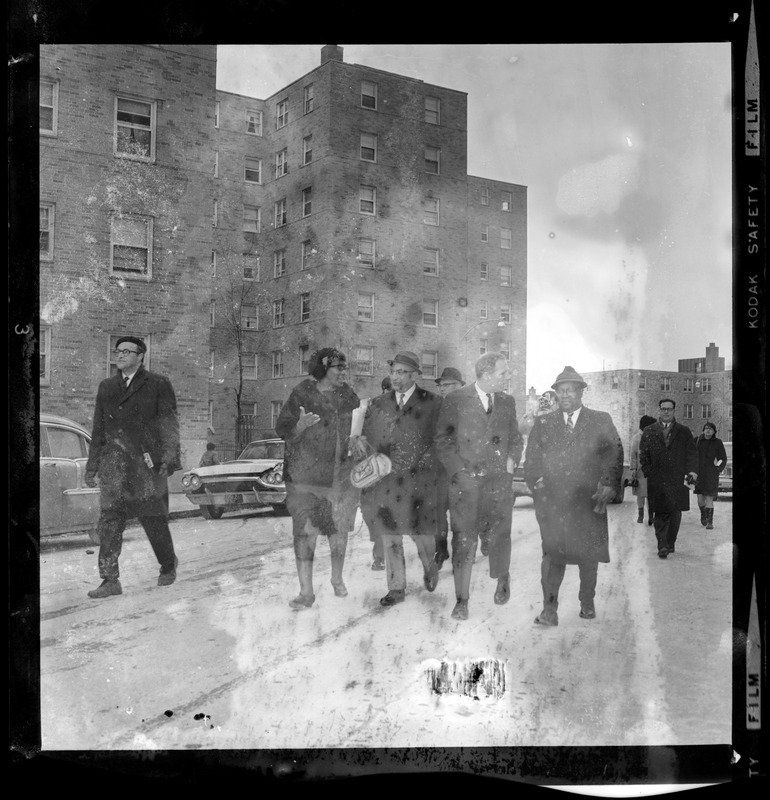
For Bostonians in the 1960s and 1970s, the words “Columbia Point” probably would have instantly brought images of criminality, poverty, and the epitome of a local urban crisis. The sensationalized stories of racial conflicts, gangs, and a general urban wasteland - removed from the rest of Boston - proved to be a great story, and perhaps even fueled the fire for the busing crisis a few years later. Despite this, the Columbia Point Housing Project was not Boston’s only declining public housing project. South Boston’s D Street Housing Project was named the worst public housing by the Boston Housing Authority (BHA) - 40% of all maintenance costs were spent on directly repairing vandalism, and “at any given time, 300 to 400 windows need to be replaced.”1 The media however, focused on Columbia Point and its strong racial demographics.
The University of Massachusetts-Boston (UMass-Boston), founded in 1964, quickly began the search for a new campus. Over three years, the state considered more than fifty sites for a suitable yet affordable location that would launch UMass-Boston into the 21st century as an urban university of the future.2 For the chancellor, students, and faculty of UMass-Boston, the last-minute decision to decide on Columbia Point seemed to come out of nowhere, but with the intense campaigning from the Boston Redevelopment Authority (BRA) and Ed Logue, and the intense corruption in Boston at this time, it is possible that the deal was done before the trustees voted. Regardless, the board agreed to purchase the land at Columbia Point for $1 million dollars.3 Let it be clear, it was the BRA, not UMass-Boston, that wanted Columbia Point.
Years later, in 1975, the John F. Kennedy Presidential Library announced that it too would move to Columbia Point, after Jacqueline Kennedy Onassis, John F. Kennedy’s widow’s, discontent with Cambridge residents - an intentional snub to JFK’s own alma mater. Soon after, the fate of the Columbia Point housing project was sealed. UMB’s campus and the JFK Presidential Library would mark a new era for Columbia Point - an era for tourism, knowledge, and appeal to the general public.
The Columbia Point Housing Project for a long time has lived under a doomed and entirely negative perspective. The tenants of Columbia Point, who for the majority of its existence were low-income minorities, were very quickly seen as exacerbators of an ever-worsening conditions and that what was happening at Columbia Point, if not nipped in the butt, would be a microcosm of cities failing all across the country. This project aims to follow the peninsula through the decades and see the strengths and failures of urban renewal, and ultimately explore who is the most affected.
Notes
- Anne Kirchheimer, “Vandalism at housing project in South Boston city's worst,” Boston Globe, December 23, 1974.
- Nina McCain, "It's Columbia Point: Trustees Vote 14-4 for UMass-Boston Campus," Boston Globe, November 23, 1968.
- Nina McCain, "It's Columbia Point: Trustees Vote 14-4 for UMass-Boston Campus," Boston Globe, November 23, 1968.